SAS selection deaths: Soldier 'asked for medical attention'
- Published
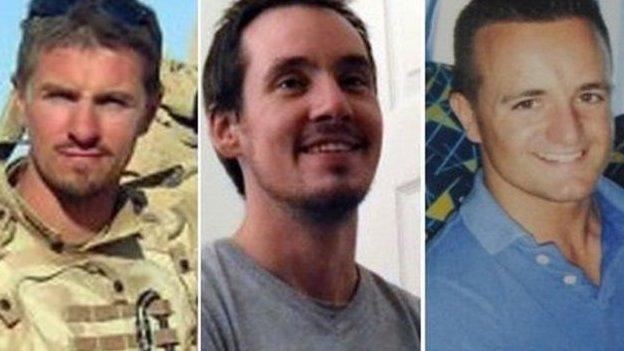
Cpl James Dunsby, L/Cpl Edward Maher and L/Cpl Craig Roberts took part in the exercise in 2013
A soldier has told how he had to repeatedly ask for medical attention for heat illness and later kidney problems on an SAS selection exercise, after which three colleagues died.
The soldier told an inquest he was not initially sent to a civilian hospital as "the Press would have a field day".
The 16-mile (26km) Brecon Beacons hike was on one of 2013's hottest days.
It resulted in the deaths of L/Cpl Craig Roberts, L/Cpl Edward Maher and Cpl James Dunsby from overheating.
The soldier, known as 2D to protect his identity, told the inquest officers had suggested his friends could look after him instead.
He said despite asking to see a doctor repeatedly after completing the exercise, he was told there was no one available and he later collapsed.
2D described feeling "disappointed" there was not more water provided at checkpoints, but he did not tell instructors about his concerns.
He said the march left him "with a shaken confidence in the Army's ability to provide basic care".
A reservist known as soldier 4E earlier told the inquest he was left hallucinating and barely able to walk on the test march.
Participants had to carry 49lb (22kg) rucksacks in temperatures up to 27C (80.6F).
4E, who had no previous military experience, told the hearing he put himself forward as a special forces candidate to "achieve something" and challenge himself.
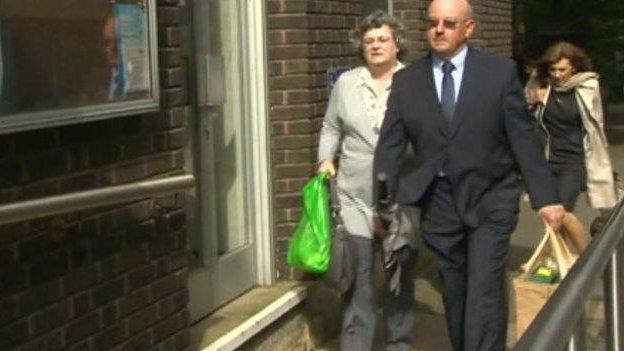
Parents of L/Cpl Roberts, Kelvin and Margaret Roberts, are at the inquest in Solihull
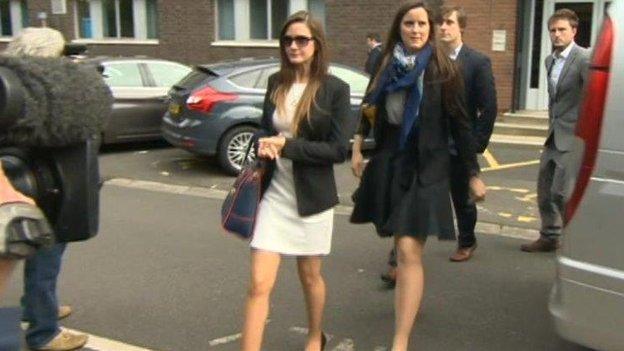
L/Cpl James Dunsby's widow Bryher Dunsby (l) previously told the inquest her husband loved the Army
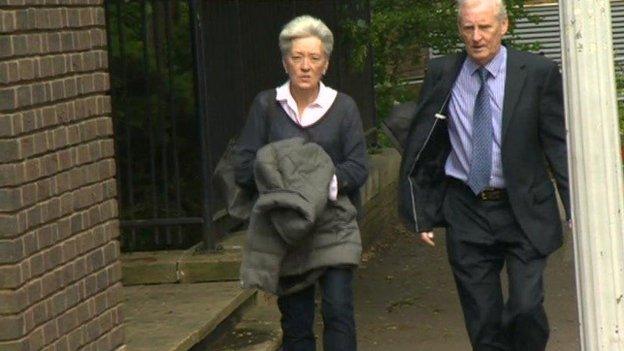
Parents of L/Cpl Edward Maher will hear evidence of how their son died
He said: "I was feeling very confused and I was hallucinating as well, so I wasn't in a very good state really."
But he did not tell his superiors how he was feeling because he thought he was able to finish the exercise.
He was later pulled from the march by a medic.
Previously, the inquest heard a soldier, known as 1W, suffered kidney and heart damage after suffering heat illness during the march.
On Monday, the hearing was told an Army officer allegedly told the family of L/Cpl Roberts there would have been "too much paperwork" to cancel the march.
The inquest continues.
- Published2 June 2015
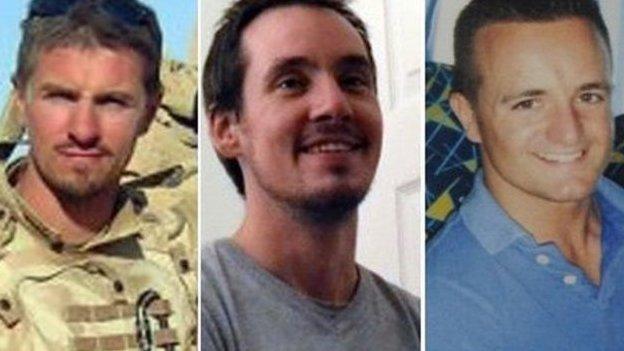
- Published1 June 2015

- Published16 September 2014
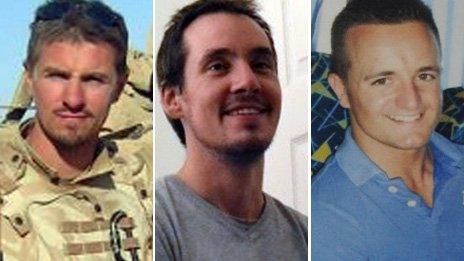
- Published3 September 2013

- Published5 September 2014
